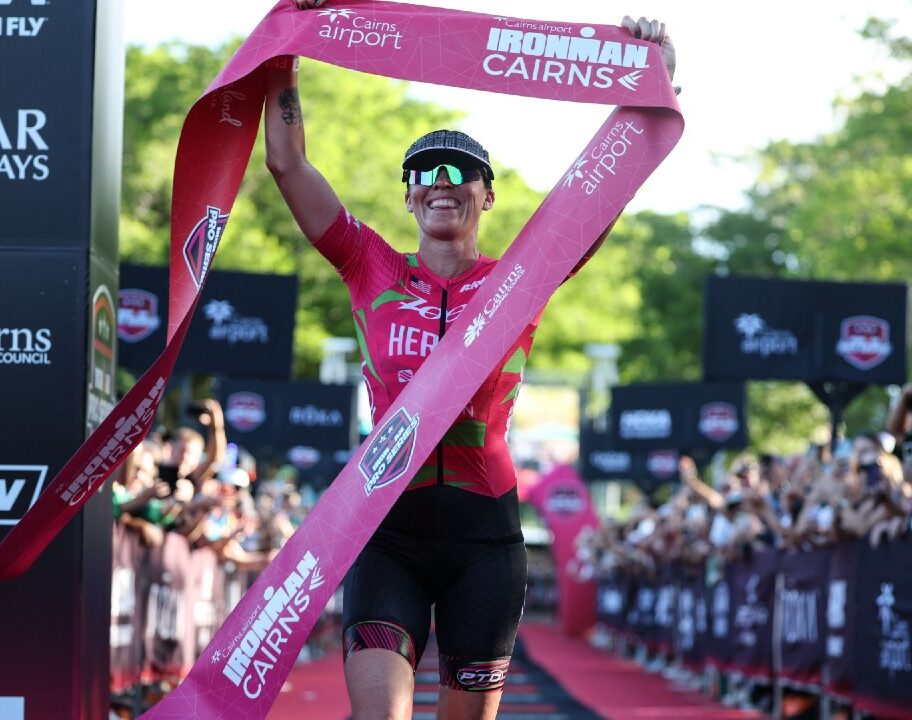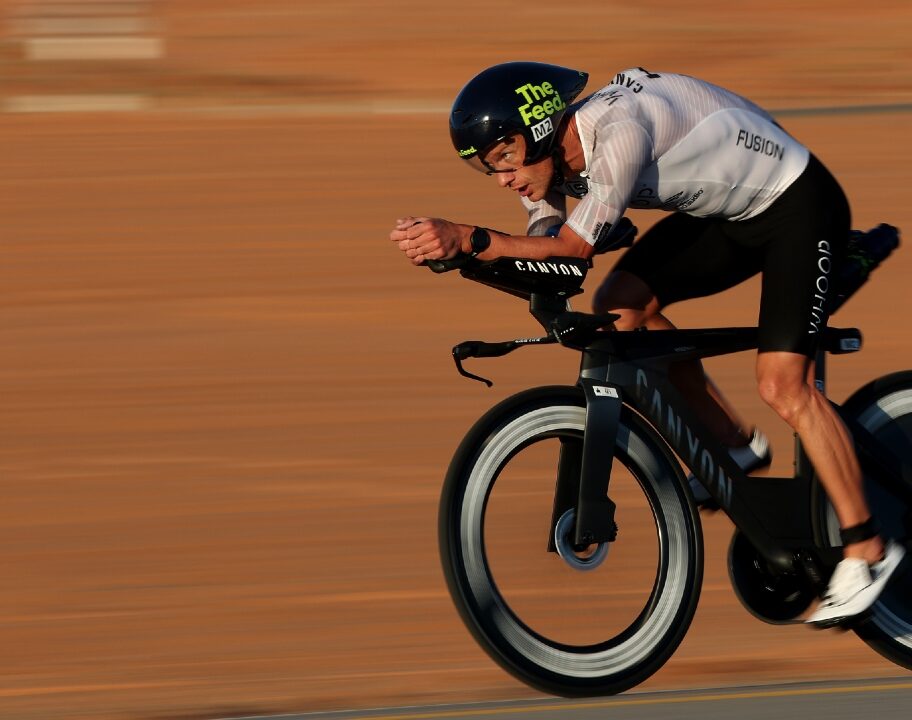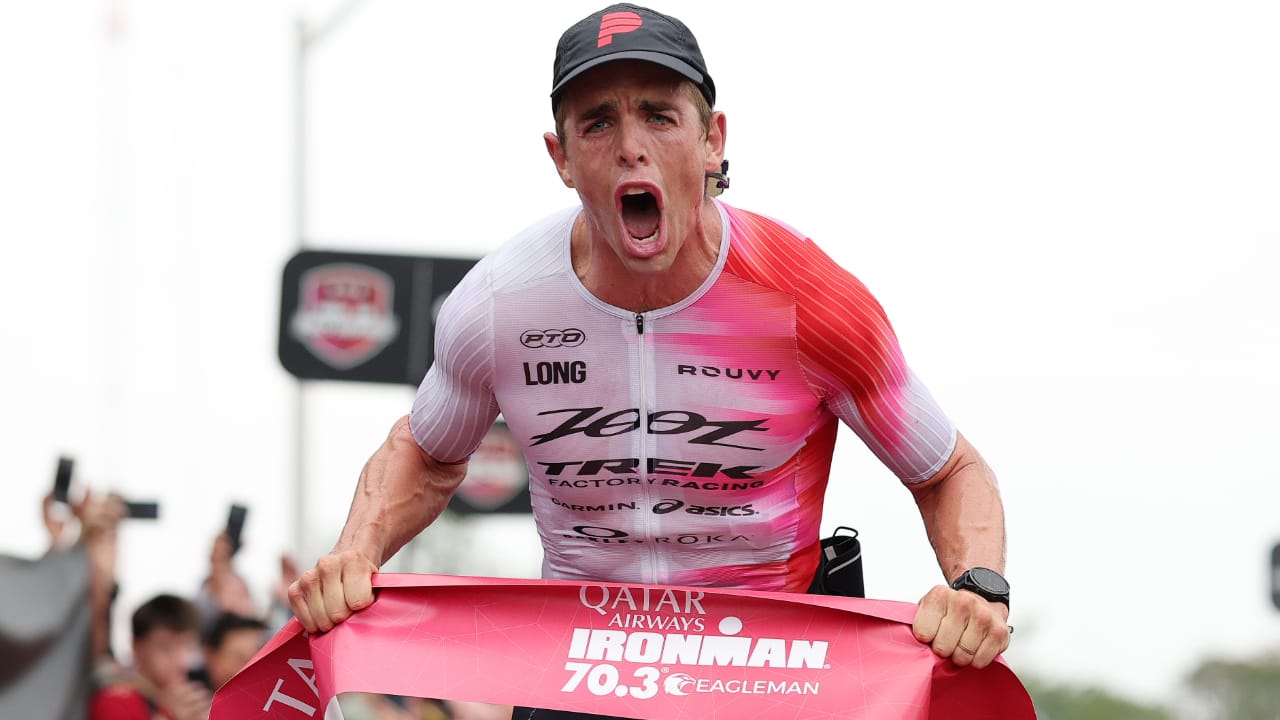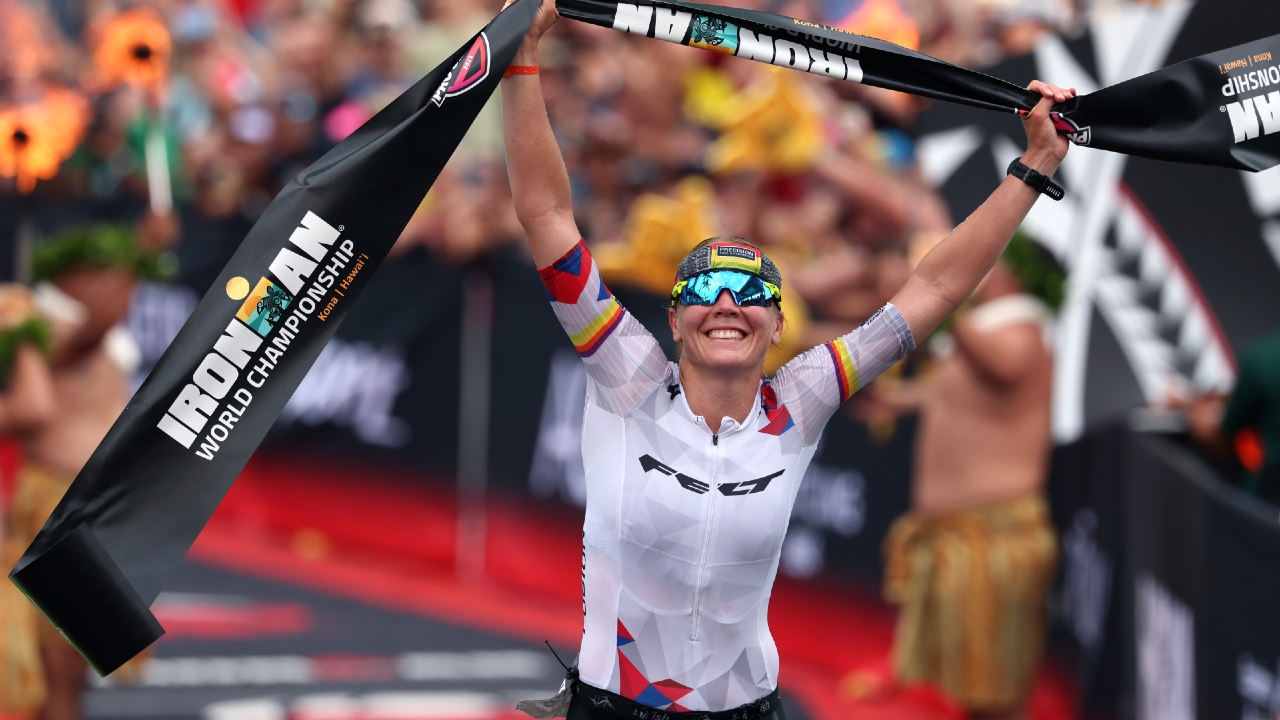Ruth Daniels became British Triathlon CEO in February 2024 so a year on and after a whirlwind 12 months which contained the Paris Olympics and Paralympics, how has she settled into the role?
She joined the organisation from a successful commercial career, most recently at Superdry plc, and commercial considerations were very much to the fore when she sat down with TRI247 to talk about the current landscape.
But so too were the challenges of making the sport more gender equal, more diverse – and ultimately if those first two aims are achieved, more popular.
Learning experience
An obvious first question was to ask about her initial impressions after making the transition into the swim, bike and run world.
And she told us: “I’ve obviously come in from outside of the sports sector and in some respects there are some similarities, but in others it’s a very different landscape because of the dynamics of your public funding versus the need to be operating in a more commercial way, but then mixed up with the governance side of things. That’s been as much of a learning experience as it is as a challenge, working out my different paymasters.
“I think sport in general – and our sport – is still on a bit of a recovery phase from COVID. Even now that piece remains a challenge because the cost of living is still having an impact on people and also societal wise, people are getting back into different routines and everybody is trying to do more with less.
“As a governing body, we’re here to invest back into the sport, both at a grassroots level, but also make sure that we’ve got pathway athletes coming through and that we can invest into the athletes that are on our world class programmes. And I think we do a great job. But there’s always more that you can do if you have more. It’s also about how effectively you use that. But I would love us to be in a position that we can put more back into the sport to help that grow and develop. It’s a very complex system but a great challenge as well.”
Top-tier home races back on agenda?
One of the most obvious results of tightening the purse strings came under her predecessor Andy Salmon, when British Triathlon decided they couldn’t justify the financial expense of hosting a WTCS event so the hugely popular Leeds race, which took place in Sunderland in 2023, dropped off the calendar.
And the World Triathlon Para Series event in Swansea, which has been a fixture for the last three years, is also absent in 2025.
Daniels says: “For me having a world-class events programme is absolutely key. It’s about making sure it’s financially sustainable. We have been looking at that, there’s been a focus on it since I’ve arrived.
“We haven’t got anything that we can talk about just yet, but it is something that I feel wedded to – making sure we have got a good, solid major events programme going forward. Showcasing the sport and having it on home territory is just really important.
“World Triathlon are obviously very keen for us to get back into hosting events. We’ve been having conversations with UK Sport and also I’m very open to doing things with third parties. It doesn’t have to be us on our own.
“For me, the financial sustainability of our organisation is key and it’s having enough resources to be able to meet the ambitions that I have certainly for British Triathlon – and triathlon as a sport as well.
“Governing bodies were set up many years ago for a specific purpose. But that purpose has evolved and the society in which it operates has evolved and I think sometimes there’s a need to stand back and go, what exactly is the governing body there to do and how should it interact and interface within the environment?
“With my corporate background, I come at this thinking British Triathlon, it’s a governing body, but we’re a brand and we have to make sure that we are relevant and resonate with those that we are there to serve.”
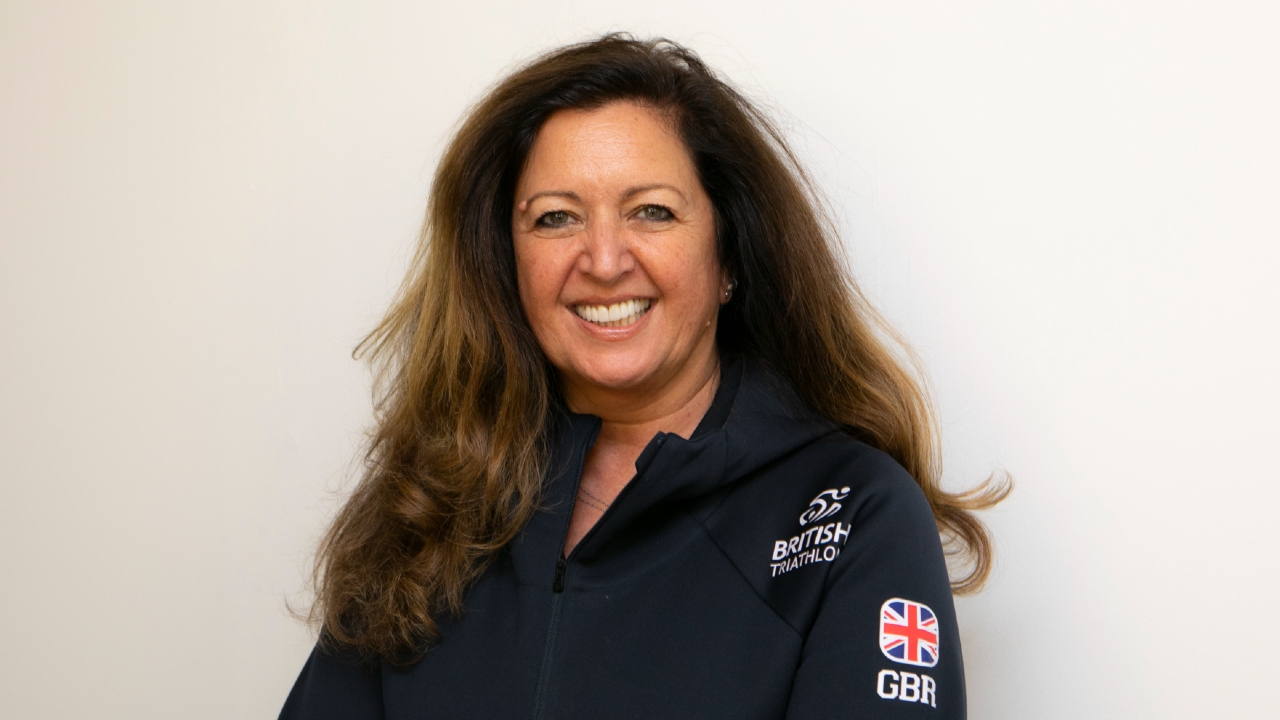
Numbers ‘need to be better’
Asked what her priorities are, she adds: “We’ve got many amazing volunteers out there, we’ve got technical officials who do a great job. We’ve got clubs and we need to continue to engage with them because they will help us grow the sport. It’s the grass roots level where that happens. And the same with event organisers as well, to make sure that we’re all working together across the community. So that is absolutely top of the list.
“We’re not back to pre Covid membership numbers. We’ve been on an upward trajectory but they need to be better. Clearly that’s important because that is a potential revenue stream that enables us to give back to the sport as well. There’s a lot of opportunity there because we have people who are members of clubs, but they’re not members of British Triathlon.
“Digital transformation is also on the list for us as an organisation. Technology deficit across sports is pretty high and this is also about setting us up to be fit for the future as an organisation.
“I keep using the expression of moving from surviving to thriving and you need to have the right enablers and the right tools to be able to do that. So that for me is something that’s key.
“I’ve already spoken about financial sustainability. And while we are very fortunate to receive money from our public purse and the National Lottery, realistically that’s going down in real terms over the years if you look at the trajectory. So we need to think differently about how we are sustainable and how we fund things.
“I think we have a huge opportunity as a sport to get some meaningful commercial partners in place because we can then decide how we invest that money and we’ve got some great partners already. But if I think about where we are as a sport, the stories and what we want to achieve, I think there are a lot of brands out there who would be served really well by engaging with us and we can help them achieve their objectives and vice versa. So those are the key focus.”
Looking ahead to LA 2028
Of course it was quite a first year to be in charge, with the Olympics and Paralympics seeing Britain’s top triathletes make the most of the biggest moment in the wider sporting spotlight. A medal in every event at the Olympics, highlighted by Alex Yee’s incredible gold, was followed by five more – including two golds – at the Paralympics.
Looking back at that, Daniels tells us: “I jokingly say to people that it would have been nice to have had another year to prep and understand before the Olympics and the Paralympics. But there’s nothing like an accelerated learning curve and I feel with my previous roles I’m pretty sure I can handle most things.
“So that was great, if a little bit exhausting. But for all the right reasons in terms of being out there, meeting people, getting across various things. It’s always hard when you start a new job. You know it’s that investment of understanding what the environment is and also meeting people and talking to people. So I feel really fortunate to have joined in the year that I did because now in my head, I’m already thinking, Los Angeles, these are things that we need to do, and we need to put in place before we get there.”
Water quality was a massive talking point in Paris and will likely continue to be so, something Daniels completely acknowledges: “It’s a hugely important issue for all of us in triathlon. The Clean Water Sports Alliance was set up last April and we were very much part of that. And in terms of highlights for this first year, that has been one of them. I think seeing how collaboration across sport can really help raise a voice both for the sport itself, the athletes and also the participants is key.
“It’s been incredible to see. I think none of us anticipated just quite the visibility that we’ve got. Throughout my career I always find that when people are passionate about something and they really want to make a change, then that’s gold dust. And I think we absolutely have that because we know for our sport the environment is incredibly important and without that in the future, then that really has a potential impact on where and how our sport might take place.”
Role models
The Olympics and Paralympics only come round once every four years so how does Daniels feel British Triathlon can maximise the success in Paris last summer for the benefit of the next generation and the sport as a whole?
She replied: “I was really keen that we ensured that we connected Paris back to the grassroots side of things. So we ran an ‘Inspired by Paris’ campaign which just got such great traction across all our social media channels. But it also translated into many more people giving it a go in the clubs and the environments that we set up. We made resources available for free at a swim, bike, run level and we just saw a fantastic take up of people wanting to have a go, which was brilliant.
“I think we’re really fortunate with the athletes that we have. They are all such great human beings and have all wanted to engage and send messages out around getting involved in triathlon. Alex [Yee], we know, is brilliant in terms of what he does. I was lucky enough to go with him to the renaming of the Ladywell Arena in his honour and it was fantastic seeing how he engages with children and his passion for wanting to see kids do triathlon.

“And that accessibility piece is really important. He’s mixed ethnicity and we are always spoken about as a white, middle-class sport, with wealthy people doing it. When he was a kid participating, he hired bikes, he borrowed bikes, all that kind of thing. And he is vested, really vested in going back to his home community and putting back into where he came from. They’re all great traits that I think people can identify with and engage with as well. It’s brilliant that he’s up there helping put our sport in the spotlight.
Gender equality
“But you don’t just need one person, you need lots of people. Alistair and Jonny Brownlee changed triathlon for ever in 2012 but we also have some great female athletes. For me, if you look at how triathlon is perceived and some of the images, I would love to see the sport talked about in the media in a slightly more balanced way as well, because it’s a sport where women compete doing exactly the same distances, they get the same prize money.
“We have some fantastic female athletes who can be great role models. We’ve seen how that’s worked in other sports. And when you look at the figures of women’s participation in sport and activity, and also teenage girls’ activity and participation, those female role models are really important for our sport as well.
“We’re very lucky to have the athletes that we’ve got and it’s the same on the Paralympic side as well. The likes of Claire Cashmore and Lauren Steadman are out there spreading the word and that is great. We need to translate that into people coming through and trying the sport. For me now it’s about building out in our club environments to make sure that our clubs are actually equipped to be able to bring more people into the sport.”

The recent joint survey [click here to read] by SheRACES and Fund Her Tri UK on the real-life experiences of women in triathlon highlighted that lots of work still needs to be done and asked if those findings surprised her, Daniels admits: “It did, actually. Partly because I’ve been involved in triathlons for the last eight, nine years and I’ve personally not had any negative experiences – and you’d know about it if I had.
“That’s not the community that I recognise or the experience that I’ve had. But I think you have to recognise that that is not everybody’s experience. I also know, just from me and my experience as being a woman, sometimes people do not say anything or they don’t feel that they can. And so if this has given people a bit more confidence or a forum to say and raise some issues that are out there, then that’s great. I think the important thing is that there is genuine listening and learning from it.
“And from an event organiser perspective I think there’s some really practical bits of advice in there. You’ve got event organisers saying that their entry levels are down or people aren’t doing as many events. Well, guess what, if you make it more appealing to a group of people that aren’t really participating, they’re going to transform the event. Look at the impact Sophie [Power, founder of SheRACES] has had in the running sphere. So good for them [also referencing Bianca Fernandez who is co-founder of Fund Her Tri] for doing it – we need activists.
“And quite frankly looking at the wider picture we are competing with other sports. So if we want people to come in and go, ‘rather than doing one sport, I’ll do three’ then we’ve got to make it an interesting, exciting and welcoming environment for them to do that.
“Like a number of other Olympic sports, we suffer from only being really visible every four years. The races at the Olympics gave us some of the moments of the entire Games which was great. But now the question is how do you then embed it in the national mindset, which is the work that we will do in the following years as well.
“And it is also about making it accessible. I still think as a sport we have to break down that perception that these athletes we saw in Paris were amazing – but I couldn’t possibly run a 28-minute 10k. So how we break that down and make it more accessible is really important.”







![Caroline Livesey wins the first ever Scottish National Gravel Championships in August 2025. [Photo credit: Outsider Events]](https://www.tri247.com/wp-content/uploads/2025/11/Caroline-Livesey-scots-national1.jpg)
